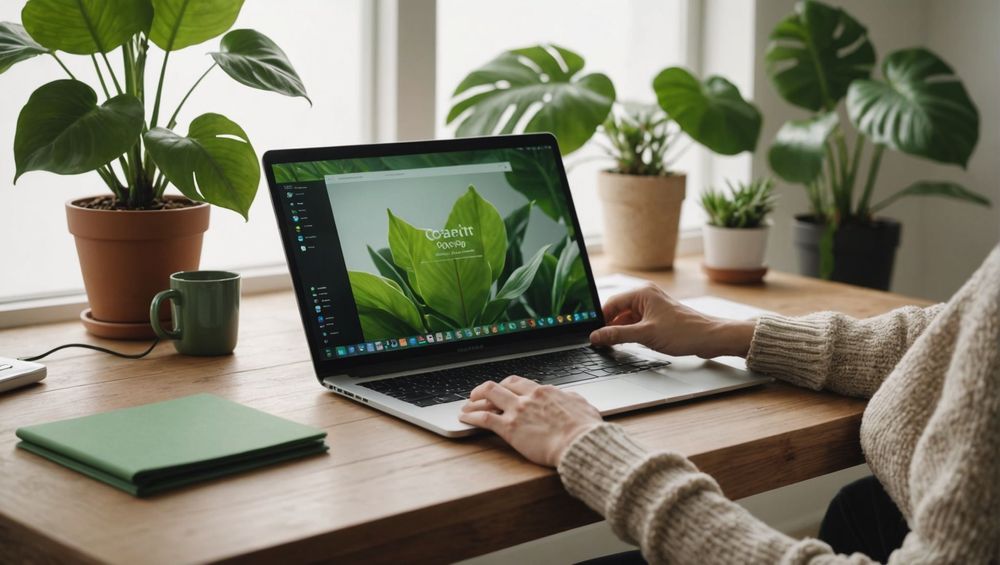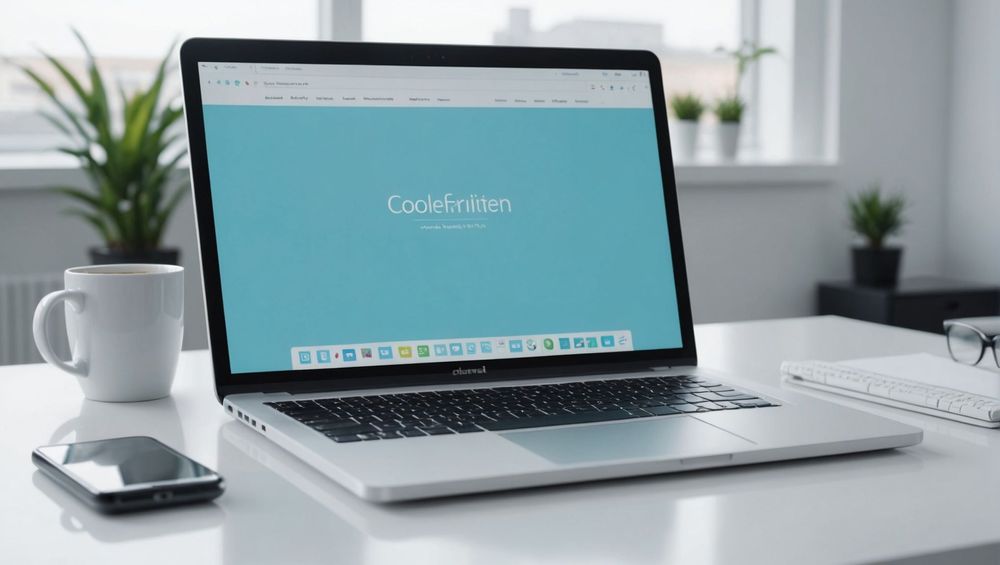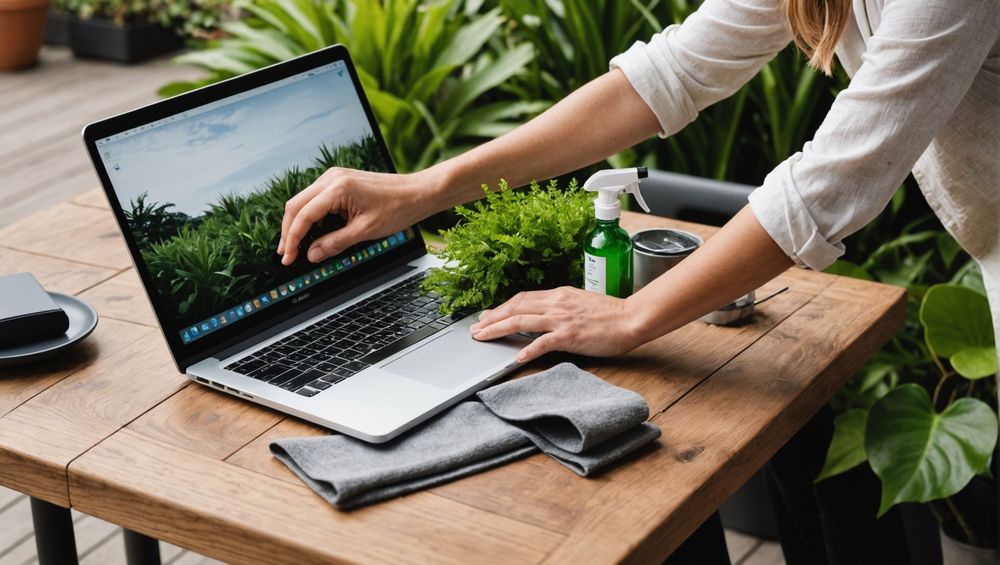Keeping your laptop screen clean is essential not only for clarity of vision but also for maintaining the longevity of your device. In this article, we will guide you through the safest methods to clean your laptop screen without causing any damage. The right techniques and materials will ensure your screen stays spotless while preserving its integrity. We will explore the necessary supplies, step-by-step cleaning methods, and tips to avoid any mishaps during the cleaning process. Let’s dive into how you can effectively clean your laptop screen!
Choosing the Right Cleaning Supplies

The first step to cleaning your laptop screen safely is to choose the right supplies. Using improper materials can scratch the screen or damage sensitive components. Here is a list of recommended supplies:
-
Microfiber cloth:
This is the best cloth for cleaning screens as it won’t leave scratches or lint behind. -
Distilled water:
Tap water can leave mineral residues, so it’s best to use distilled water. -
Isopropyl alcohol:
In a 50/50 mix with distilled water, it can help remove tougher stains and smudges. -
Spray bottle:
This is useful for evenly applying your cleaning solution. -
Screen-safe cleaner:
If preferred, commercially available cleaners specifically designed for screens can be used.
Ensure that you avoid paper towels, which can cause scratches, and any cleaners that contain ammonia, as they can damage screen coatings. With the right supplies in hand, you’re ready to begin cleaning!
Step-by-Step Cleaning Process

Now that you have your supplies ready, it’s time to follow a safe and effective cleaning process for your laptop screen. Here’s a simple step-by-step guide:
-
Power Down:
Before starting, turn off your laptop and unplug it. It’s essential for both your safety and to prevent any damage. -
Prepare the Cleaning Solution:
If you choose to make your own solution, mix equal parts distilled water and isopropyl alcohol in the spray bottle. Alternatively, use a screen-safe cleaner. -
Application:
Lightly mist the microfiber cloth with your cleaning solution. Avoid spraying directly onto the screen to prevent moisture from leaking into the device. -
Wipe Gently:
With the dampened cloth, gently wipe the screen in circular motions. Do not apply too much pressure, as this can damage the screen’s surface. -
Dry the Screen:
Use a dry part of the microfiber cloth to gently buff the screen and remove any remaining moisture.
Following these steps will ensure that your laptop screen is cleaned effectively without the risk of damage. Make sure to be gentle throughout the cleaning process for the best results.
Additional Tips for Maintaining a Clean Laptop Screen

Besides the actual cleaning process, there are several tips and tricks you can implement to maintain a cleaner laptop screen. These practices can reduce the frequency of deep cleaning and enhance your viewing experience:
-
Keep Your Hands Clean:
Regularly wash your hands before using your laptop. Oils and dirt from your fingers can transfer to the screen. -
Use a Keyboard Cover:
A keyboard cover can reduce debris from falling onto the screen when you close your laptop. -
Avoid Eating Over Your Laptop:
Crumbs and spills are enemies of a clean screen, so try to avoid snacking near your device. -
Implement Regular Cleaning:
Cleaning your screen weekly or bi-weekly can prevent build-up and make each cleaning sessions easier. -
Store Properly:
When not in use, store your laptop in a protective case to prevent dust accumulation.
These tips will help ensure that your laptop screen remains clean and clear between deep cleans, enhancing both your productivity and visual enjoyment.
Common Mistakes to Avoid When Cleaning Your Laptop Screen
While cleaning your laptop screen is straightforward, there are common mistakes that many people make that can lead to damage. Here are some pitfalls to avoid:
-
Using Paper Towels:
Paper products can scratch the screen. Always opt for microfiber cloths. -
Excessive Moisture:
Applying too much liquid can cause it to seep into the edges of the screen, potentially damaging internal components. -
Ignoring the Manufacturer’s Guidelines:
Every laptop may have specific cleaning requirements, so it’s essential to check the manufacturer’s recommendations. -
Cleaning While the Laptop is On:
This can lead to potential electrical damage or screen fixation. -
Using Harsh Chemicals:
Avoid any cleaners containing ammonia or bleach as they can damage screen coatings.
By steering clear of these common errors, you can ensure a smoother, safer cleaning experience that protects your laptop screen in the long run.
Conclusion
Cleaning your laptop screen doesn’t have to be a daunting task. By using the right materials and following a step-by-step process, you can keep your screen pristine without the risk of damage. Regular maintenance practices, along with being mindful of common pitfalls, will enhance your viewing experience while prolonging the life of your device. With these tips in mind, your laptop screen will be clear and clean, ensuring optimal performance and enjoyment.
FAQs
1. Can I use water to clean my laptop screen?
Yes, you can use distilled water, but it’s best to mix it with isopropyl alcohol in a 50/50 solution for more effective cleaning.
2. How often should I clean my laptop screen?
It’s advisable to clean your laptop screen weekly or bi-weekly, depending on usage, to avoid build-up of dirt and smudges.
3. Is it safe to use Windex on my laptop screen?
No, Windex contains ammonia, which can damage the screen’s coating. It’s best to use a solution specifically designed for electronics.
4. What should I avoid when cleaning my laptop screen?
Avoid using paper towels, excessive moisture, and harsh chemicals such as bleach or ammonia. Always use a microfiber cloth instead.
5. Is it better to buy a commercial screen cleaner or make my own?
Both options are valid; however, homemade solutions using distilled water and isopropyl alcohol can be just as effective and are typically more cost-efficient.